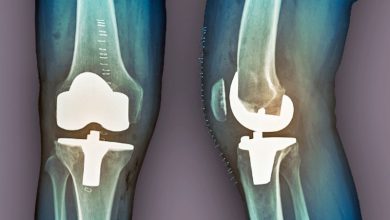Western Australia pursuing healthcare generative AI and more briefs


WA gov’t funds gen AI in healthcare projects
Nearly a million Australian dollars ($590,000) have been awarded by the government of Western Australia to support projects exploring the use of generative AI in healthcare.
A total of 19 projects will see how they can use generative AI to address challenges across health and medical research, health and medical innovation, healthcare service delivery and health and medical education and training. Two identified projects will apply generative AI to support the diagnosis of Alzheimer’s disease and ear conditions.
“This technology involves uncertainties and risks, but also has the potential to dramatically increase efficiency, improve the quality of care, and create value for health care organisations,” WA Medical Research Minister Stephen Dawson said about generative AI.
Queensland University subbing health clinics’ legacy systems
Queensland University is set to replace the legacy and mixed systems across its network of outpatient clinics and teaching clinic settings.
Clintel Systems has been tapped to deploy CareRight, its integrated PAS, EMR, and Billing and Claiming solution, across the university’s clinics. It will be initially rolled out to five disciplines in three clinics with up to 1,200 users.
Australia’s first online perimenopause, menopause registry goes live
A Flinders University professor has launched what could be the first online registry for perimenopause and menopause in Australia.
Called VITAL (Virtual Registry of Perimenopause in Australia), it aims to gauge the actual burden of perimenopause and menopause in the country by collecting community data. The data will then be used to identify trends and improve research and education about women’s health, according to a media release.
Associate Professor Erin Morton, director of Flinder’s Health Data & Clinical Trials unit, said she created the registry after realising the lack of community awareness about and support for perimenopause in the community.
“This is an area of health that is so neglected and is still really stigmatised. There seems to be a lack of knowledge across healthcare roles, poor access to services, negative attitudes and lagging research to support women through this important time of life. There is very little information and support available, not to mention a lot of misinformation about hormone replacement therapy,” she stressed.
Poor teleaudiology uptake recorded during pandemic in Australia: study
New research has revealed the low uptake of teleaudiology services during the recent COVID-19 pandemic despite people’s willingness to access them.
The said study, whose findings were published in the American Journal of Audiology, explored the perceptions of telehealth usage among Australian hearing healthcare stakeholders. It involved over 300 participants, including audiologists, audiometrists, students, academics, patients, and industry partners.
It found that only 7% of the participating patients had taken teleaudiology appointments – this is despite more than half of them saying they were aware of the technology. Most patients (98%) were also never offered a teleaudiology appointment, the study noted.
Boaz Mui, PhD student at Flinders University and lead author of the study, suggests a shift in approach to promoting the technology. “Increasing the awareness of telehealth audiology services and developing collaborations between stakeholders will be crucial to improve the acceptance and usage of teleaudiology in the future,” he said.
Mater Townsville implements digitally enabled after-surgery protocols
Mater Private Hospital Townsville is enhancing the post-operative experience for patients with the launch of Enhanced Recovery After Surgery protocols.
Powered by Personify Care’s digital pathways, these enable patients to receive information on what to expect before, during, and after select surgery procedures.
The protocols will also help “reduce hospital length of stay for a number of orthopaedic patients,” said Stephanie Barwick, the hospital’s general manager, in a statement.
NSW Health, Epic formalise SDPR contract
This week, NSW Health and Epic have completed their negotiations and proceeded with the signing of the contract to deliver the state’s Single Digital Patient Record (SDPR).
This comes almost a year after Epic was chosen for the project, which aims to integrate all digital systems across NSW. These include nine EMR platforms,10 PAS, five pathology LIMS and several other clinical support systems.
Work is now underway for the initial design and build of the SDPR.




